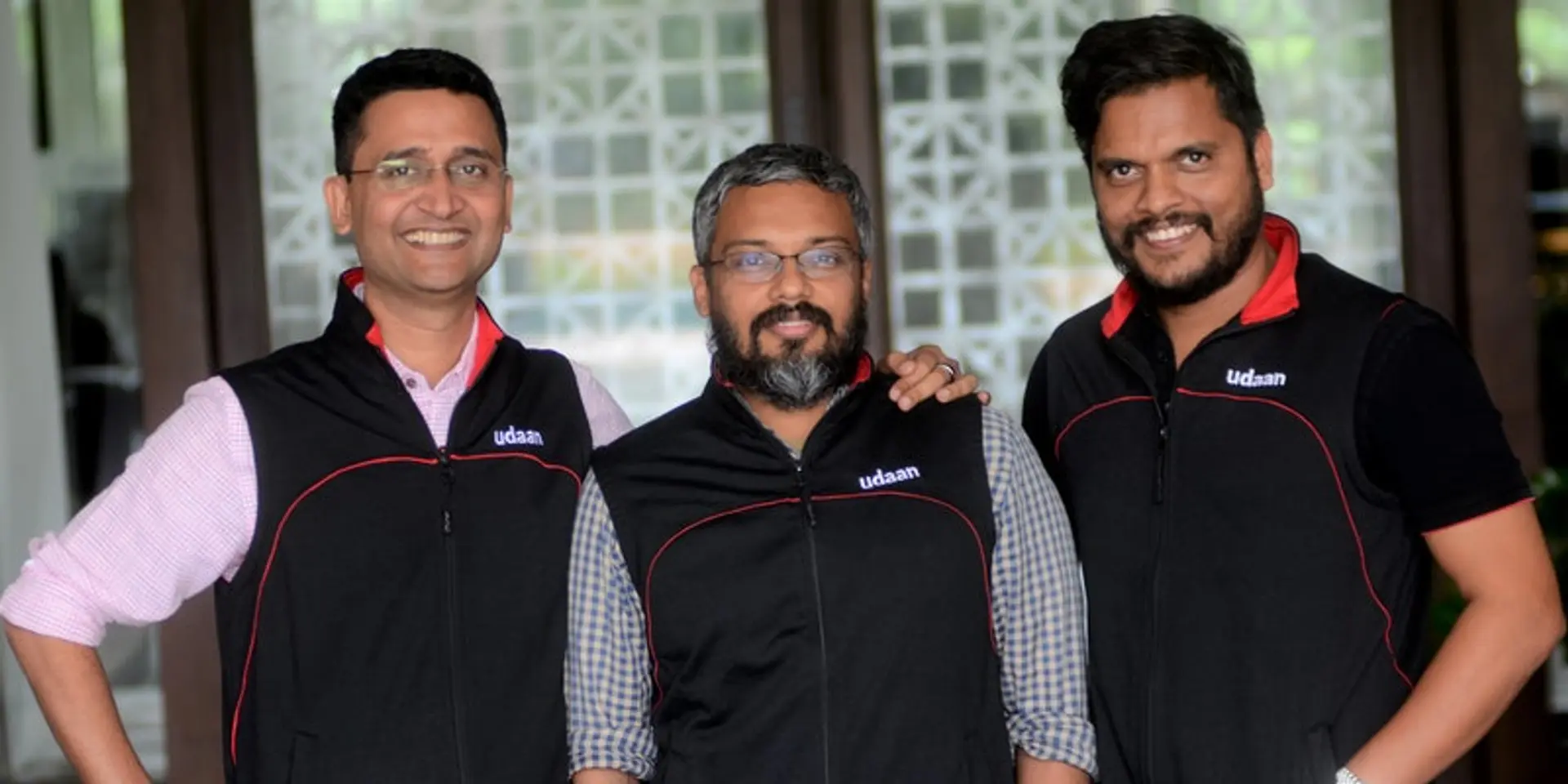Coronavirus: How Udaan is tackling delivery challenges amidst increased demands during lockdown
In a conversation with Shradha Sharma, Founder and CEO of YourStory, Sujeet Kumar, Co-founder of Udaan, on how the startup is dealing with supply and delivery challenges during the lockdown imposed to contain the coronavirus.
The ongoing nationwide lockdown to curb the spread of the coronavirus has affected several sectors. And while Prime Minister Narendra Modi announced that supply of essential services could continue to function as is during this lockdown, grocery and daily essentials delivery have taken a beating.
To put it simply, the coronavirus lockdown has disrupted the entire supply chain. While the central government has mandated that essential stores and supply will continue as is, there are many contributing factors affecting its smooth operation.
In a video interaction with Shradha Sharma, Founder and CEO of YourStory, Sujeet Kumar, Co-founder of , says,
“Nobody has ever been prepared for a disruption of this scale, and all of us are working to solve for it.”
Watch the full interview here:
Founded in 2016 by Sujeet, Amod Malviya, and Vaibhav Gupta, Udaan focusses on horizontal B2B ecommerce, and operates across lifestyle, home and kitchen, staples, fruits and vegetables, FMCG, toys, and general merchandise.
The platform helps SMEs like small manufacturers, brands, mills, and farmers, to sell their products across the country at a low cost.
Working with essentials
According to Sujeet, Udaan’s business is divided into three parts – food, non-food, and pharma. Within these three parts, the food business other than some FMCG products quality as essentials, and so does the pharmaceutical part, but the non-food doesn’t.
One of India’s fastest growing unicorn, Udaan is present in 30 cities across 21 states in the country, and the platform primarily supplies to kirana stores.
“While we have seen a massive spike, there are several on-ground challenges. Each state and city have different norms and rules and local authorities work differently everywhere. We can’t say that systems need to be in place because these are unusual circumstances. You need to work locally everywhere,” says Sujeet.
He adds that these aren’t ‘business as usual’ times.

Udaan Founders - Amod Malviya, Vaibhav Gupta, and Sujeet Kumar (L-R)
Working with a frozen supply chain
The supply chain, he explains, works from production to consumption. These have different facets – from the farmers to the mandis to mills to wholesalers, and finally, to the retailers. With the lockdown in place, several parts of this chain are not working like before.
“Wholesale markets, mandis are all crowed, so they are shut, and now essential products reaching the kirana store is a challenge,” explains the co-founder. However, the solution isn’t easy, he adds that while working with the government authorities, the fix isn’t that simple.
Apart from this, the logistics portion has also taken a hit. Sujeet explains that while several mill owners can own permits and passes, the issue is identifying which truck was actually used for the transport of essential goods.
“After the goods are delivered, it is an empty vehicle, and authorities will be unable to verify if these were used for essential goods delivery or not,” says Sujeet.
Also, while 99 percent of India’s consumption of essentials happens through local kirana stores, not all of them are working full-time.
Sujeet says that these people need to procure their produce from the local markets. “And even if they come online, we need to ensure the supply works uninterrupted, which isn’t the case with not every warehouse, logistics, and wholesale market working,” he adds.
To get the supply chain working, various facets need to be functioning.
Mobilising the workforce
On top of it all, mobilising the on-ground workforce to come to work every day is a challenge. During the early days of the lockdown, disturbing reports emerged of delivery personnel, warehouse, factory, and on-ground staff from “essential services” getting beaten up by the police across the country.
“While the situation is now in control, the on-ground staff are nevertheless worried to come to work. They are scared of the situation and also of their safety and well-being,” adds Sujeet.
Udaan is working with different government and local authorities to procure passes and get the necessary permits in place. “Also, not every kirana store is open. Most are scared of the pandemic. To top it, these are daily wage earners, so they cannot be away from work as well. It is a tough situation,” says Sujeet.
Another problem is the work from home requirement for an operations-intensive business like Udaan as coordinating remotely becomes very hard.
“While we do go to warehouses and check the supply and workings, it is difficult to run an operational command remotely,” adds Sujeet.
Nevertheless, he explains that the government has been proactive and is working to help small businesses and delivery of essential supply.
“We are working close to 60 percent of our operational capacity,” says Sujeet.
(Edited by Saheli Sen Gupta)










